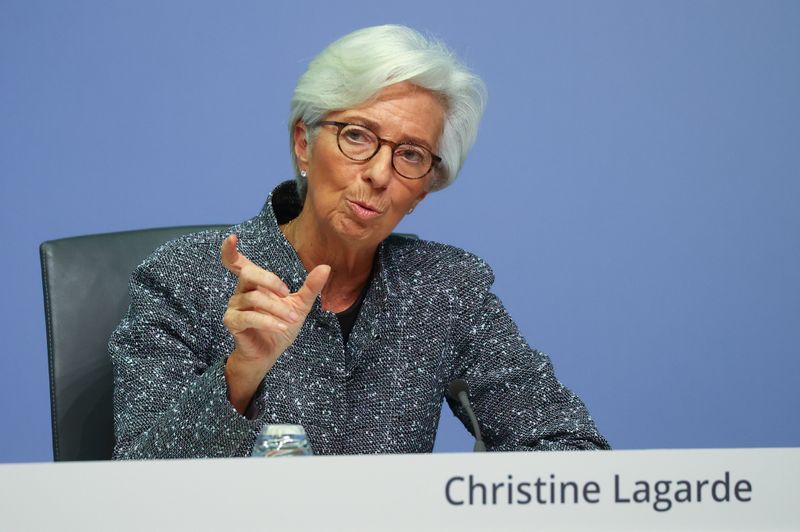FRANKFURT, June 21 (Reuters) – The euro zone and the United States are “clearly in different situations” when it comes to the outlook for inflation, Christine Lagarde, President of the European Central Bank (ECB), said on Monday in minimizing the risk of an impact of the evolution of American prices on that of European prices.
Officials from the US Federal Reserve unpleasantly surprised financial markets last week by announcing that they had started discussing the future halt in Fed bond purchases, in anticipation of a hike in interest rates which could therefore occur sooner than ‘anticipate until then.
These announcements rekindled the debate on the risk of rising inflation and tightening monetary policies elsewhere in the world.
But Christine Lagarde, during her hearing in the European Parliament, warned against a simplistic comparison between the two shores of the Atlantic, explaining that the recovery in the United States was much more advanced than in the euro zone.
“The United States and Europe are clearly in different situations,” she told MEPs. “It is tempting to compare them but it is not very wise given the many differences between the two economies.”
She acknowledged that the acceleration of inflation in the United States could have “spillovers” through import prices or consumer inflation expectations in the euro area.
“Overall, however, the effects on euro area HICP inflation are expected to be moderate,” she said.
The ECB, she added, estimates that the stimulus measures in the United States will have a cumulative impact of 0.15 percentage point on inflation and 0.3 percentage point on growth between 2021 and 2023 in the euro zone, figures which were already included in the institution’s March forecasts.
Christine Lagarde also repeated that it was not yet time to allow a rise in market interest rates, which justified the maintenance by the ECB of favorable financing conditions.
“A sustained rise in market rates could translate more broadly into a tightening of financing conditions for the entire economy”, she explained, repeating remarks made at the end of the monetary policy meeting. June 10.
“Such a tightening would be premature and would pose a risk to the ongoing economic recovery and inflation outlook.” (Report Balazs Koranyi; French version Marc Angrand, said by Jean-Michel Blot and Bertrand Boucey)
–


